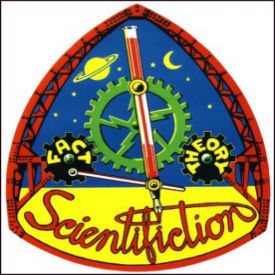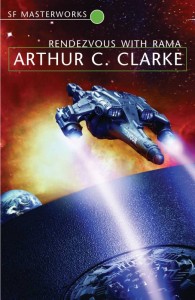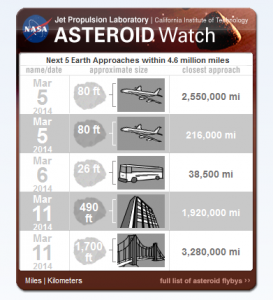 At one time or another many of us have been asked which science fiction novel we consider to be the greatest of all time. I find myself asked this question quite frequently, especially from my friends that don’t read science fiction.
At one time or another many of us have been asked which science fiction novel we consider to be the greatest of all time. I find myself asked this question quite frequently, especially from my friends that don’t read science fiction.
Each time they ask the question I end up staring blankly at their faces. The titles of dozens of novels dance through my head. Every answer that comes to mind is both the right answer and the wrong answer.
Each of us has our personal preferences. Your friend might think a novel they just read is the greatest thing in print, while you might disregard it as a waste of time. Is one person right and the other wrong?
Each reader has their own notion of what makes great science fiction. Does that mean it is impossible to quantify greatness, or is there some elusive measuring stick with which to evaluate science fiction novels?
Some might suggest the best way to measure a novel’s success is by the number of units it sold. Publishers make a living with this measuring stick, but we are digging deeper than commercial success. We are looking for greatness. Yes, sales can be an indicator of greatness, but perhaps we can all agree that some bestselling novels really aren’t that good.
One quantifiable method to determine greatness is by the number of awards a novel has won. Awards are handed out in a subjective manner with voters picking their favorites. It seems a bit contradictory to use the subjective designation of the novel’s greatness for an objective study, but using a dispersed voting body across many different awards can lead us to a universal opinion.
While awards are often accused of being biased or limited in scope, today we will push forward using the awards to provide the foundation for demonstrating a novel’s greatness. Other factors we will include in the evaluation are the commercial success of the novel, the stature of the author, critical acclaim, and any other elements that may help us present the case for greatness.
We will also endeavor to use sound judgment in the selection of the greatest science fiction novels of all time. Some circumstances, may have led to some very great works not receiving all of the awards they deserved. After all, if the two greatest novels ever written were published the same year, only one can win the award. The other would be left holding a long list of nominations and no trophies to put on the shelf. Furthermore, many of the greatest novels were published before any awards even existed.
Over the coming weeks, as we continue to add to the list, I will do my best to resist the temptation to rank them in order of greatness. I don’t think it is possible to select a single novel as the greatest of all time. For each novel in the series, I will simply present the case for why it should be considered as one of the greatest science fiction novels of all time.
Ultimately, you will need to judge if you consider it a worthy candidate. There are many amazing novels written throughout the years, so it might take a while to get to your favorite. Please feel free to offer suggestions and recommendations in the comments section. I’m guessing your favorite is already on my list, but I don’t want to leave any out.
Now on to the first candidate for the greatest science fiction novel of all time.
RENDEZVOUS WITH RAMA BY ARTHUR C. CLARKE
 Title: Rendezvous with Rama
Title: Rendezvous with Rama
Author: Arthur C. Clarke
First Year Published: 1973
Awards:
John W. Campbell Memorial Award for Best Science Fiction Novel 1974
Nebula Award for Best Novel 1973
Hugo Award for Best Novel 1974
Jupiter Award for Best Novel 1974
British Science Fiction Association Award 1973
Locus Award for Best Novel 1974
Seiun Award for Best Foreign Language Award Novel 1980
Quotes:
Martin Amis, The Observer, “triumphant”
Sam Jordison, The Guardian, “ingenius”
SFReviews.net “Indisputable SF classic”

Rendezvous with Rama was first published in 1973. It was written by the legendary author Arthur C. Clarke who is a member of the Science Fiction Hall of Fame and is a SFWA Grand Master. Clarke is considered along with Heinlein and Asimov to be one of the “Big Three” science fiction authors.
His style favors hard science fiction over in depth characterization. Some critics disliked this about the novel, but most accepted it as Clarke’s style.
The novel chronicles the events of an alien ship arriving in Earth’s solar system unexpectedly. A group of scientists are sent to the ship to investigate. The novel details their experiences during the adventure.
The novel achieved an surpassed level of acclaim in the science fiction industry. Rendezvous with Rama is one of only two novels to win the John W. Campbell Memorial Award, the Hugo Award, the Nebula Award, and the Locus Award.
Clarke is better known for the wildly successful film 2001: A Space Odyssey, but some consider Rendezvous with Rama his greatest tale. The novel represents a cornerstone for his lifetime of work–a career awarded by countless awards and citations, including full knighthood.
Options for a film were sold long ago, but a film based on the novel has never managed to make it out of the development stage. Perhaps in the next decade we may see it on the screen. We can only hope.
Clarke wrote that the novel was always intended to be a standalone work, but it was later serialized with co-author Gentry Lee.
The greatness of the novel is found in Clarke’s ability to tell an engaging story that allows the reader to glimpse the horizon and consider new ideas. His science always seems plausible and has been an inspiration for many scientists.
 In the novel, Clarke created a space study program he named Project Spaceguard. It was intended to protect Earth from objects in space that might be on a collision course. In 1992, the US government approved funding for NASA to start a program that would be named Spaceguard. The program shares the same goals as Clarke’s Spaceguard as well as its name.
In the novel, Clarke created a space study program he named Project Spaceguard. It was intended to protect Earth from objects in space that might be on a collision course. In 1992, the US government approved funding for NASA to start a program that would be named Spaceguard. The program shares the same goals as Clarke’s Spaceguard as well as its name.
Rendezvous with Rama by Arthur C. Clarke is a worthy candidate for the greatest science fiction novel of all time. If you haven’t read it yet, it’s time to add it to your list.
R.K. Troughton works as an engineer, developing tomorrow’s high-tech gadgets that protect you from the forces of evil as well as assist your doctor in piecing you back together. His passion for science fiction and fantasy has been fed through decades of consumption. He is the author of numerous science fiction and fantasy screenplays and short stories, and his debut novel is forthcoming. His articles appear every Wednesday morning on Amazing Stories.










Recent Comments